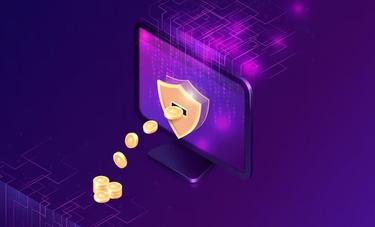Non-custodial crypto wallet
Non-custodial crypto wallets offer a decentralized approach to storing and managing cryptocurrencies[1]. Unlike custodial wallets, non-custodial wallets give users full control over their private keys[2], and thereby their assets. This control ensures that only the wallet[3] owner has access to their funds, reducing the risk of third-party mismanagement or theft. However, this also means that the user bears the full responsibility for the security of their wallet, including safekeeping of private keys and backup phrases[4].
Features and Benefits
Non-custodial wallets are characterized by their emphasis on user sovereignty and security. They often come in the form of hardware wallets, software wallets, or paper wallets, each offering different levels of security and convenience. One of the primary benefits of non-custodial wallets is the enhanced privacy they offer, as transactions do not necessarily require personal identification or the involvement of a third party[5].
Moreover, non-custodial wallets support a wide range of cryptocurrencies and provide users with the ability to interact directly with decentralized applications (dApps) without compromising their security. This direct interaction is crucial for participating in the broader ecosystem of decentralized finance (DeFi) and other blockchain[6]-based applications.
Key Facts
- Non-custodial wallets provide full control over private keys to the user.
- They enhance privacy and security by eliminating third-party involvement.
- Users are responsible for the security and backup of their wallet.
- Direct interaction with dApps is facilitated, promoting a decentralized ecosystem.
Non-custodial crypto wallet
A non-custodial crypto wallet represents a significant shift in the way individuals store and manage their digital assets, offering a level of autonomy and security that distinguishes it from traditional, custodial solutions. Unlike custodial wallets, where a third party like an exchange[7] or a bank holds the private keys to the wallet, non-custodial wallets give the user full control over their keys and, consequently, their funds. This fundamental difference has profound implications for privacy, security, and user autonomy in the digital currency[8] space.
Understanding Non-Custodial Crypto Wallets
Non-custodial crypto wallets empower users by granting them complete control over their digital assets. This means the user is solely responsible for managing their wallet’s private keys—a critical piece of information used to authorize transactions on the blockchain. By holding their keys, users ensure that they, and they alone, have access to their funds.
The Security Advantage
The primary benefit of a non-custodial wallet is enhanced security. Since the user controls the private keys, the risk of losing funds through the hacking of a centralized exchange or wallet provider is significantly diminished. However, this also means that the responsibility for securing the keys falls entirely on the user. If the keys are lost, so too are the assets, with no possibility of recovery.
Privacy and Anonymity
Non-custodial wallets offer a higher degree of privacy compared to their custodial counterparts. Since users do not need to provide personal information to a third party to create or manage their wallet, they can conduct transactions with greater anonymity. This feature is particularly appealing to those who prioritize privacy in their financial dealings.
User Autonomy and Control
By using a non-custodial wallet, users enjoy complete autonomy over their funds. This control allows for direct interactions with various blockchain services and decentralized applications (dApps) without the need for intermediary approval or oversight. Such direct engagement fosters a more open and decentralized ecosystem for financial transactions and applications.
The Importance of Backup and Recovery
Given the absence of a central authority to turn to in case of lost access, non-custodial wallets emphasize the importance of backup and recovery processes. Users must ensure they have reliable methods in place, such as writing down seed phrases or using hardware wallet[10] backups, to recover their funds if necessary.
Ease of Use and Accessibility
While non-custodial wallets offer significant benefits, they also require a certain level of technical understanding and diligence from the user. The need to securely manage private keys and understand the basic principles of blockchain technology can pose challenges for newcomers to the crypto space.
The Future of Non-Custodial Wallets
As the blockchain and cryptocurrency[11] sectors continue to evolve, so too do the features and usability of non-custodial wallets. Innovations in user interface design, security features, and cross-chain functionality are making these wallets more accessible and safer for a broader audience.
In conclusion, non-custodial crypto wallets play a crucial role in the decentralization[12] and security of digital assets. They empower users with control over their funds, enhance privacy, and reduce reliance on centralized financial institutions. However, this increased control comes with the responsibility of securely managing private keys. As the technology matures, the continued development of more user-friendly and secure non-custodial wallets will be key to their widespread adoption.
- Cryptocurrencies — Digital or virtual currencies that use cryptography for security and operate on a decentralized system, unlike traditional currencies.
- Private Keys — Cryptographic keys that are used to access cryptocurrency addresses and sign transactions.
- Wallet — A digital tool that allows users to store and manage their cryptocurrency addresses.
- Backup Phrases — A sequence of words generated by the wallet that allows access to cryptocurrencies if the wallet is lost.
- Third Party — An entity that operates the custodial wallet, holding the cryptographic keys on behalf of the user.
- Blockchain — A decentralized digital ledger recording cryptocurrency transactions across multiple computers.
- Exchange — A platform where individuals can buy, sell, or trade cryptocurrencies for other digital currency or traditional currency.
- Digital Currency — A digital or virtual currency that uses cryptography for security, making it difficult to counterfeit.
- Anonymity — The ability to maintain privacy over transaction and identity details within cryptocurrency transactions.
- Hardware Wallet — A physical device that stores the user's private keys securely offline.
- Cryptocurrency — Digital or virtual currency secured by cryptography, facilitates secure, anonymous transactions.
- Decentralization — Distribution of power away from a central authority in the management of cryptocurrencies.
- SatoshiLabs. 'Trezor Hardware Wallet (Official) | The original and most secure hardware wallet'.
- Electrum. 'Electrum Bitcoin Wallet'.
- MyEtherWallet. 'MEW: MyEtherWallet'.



